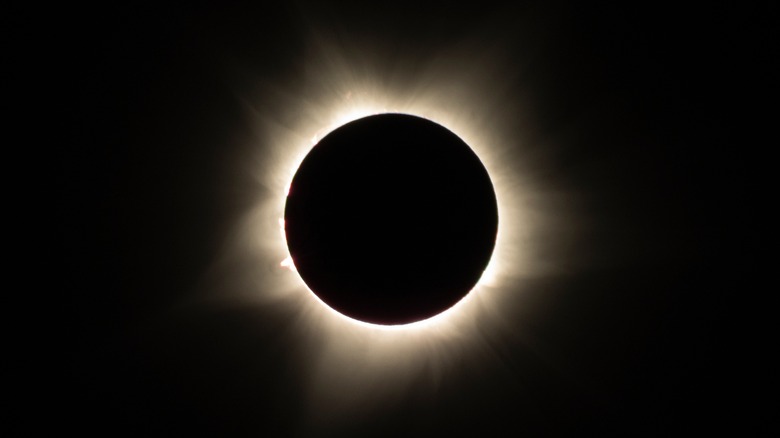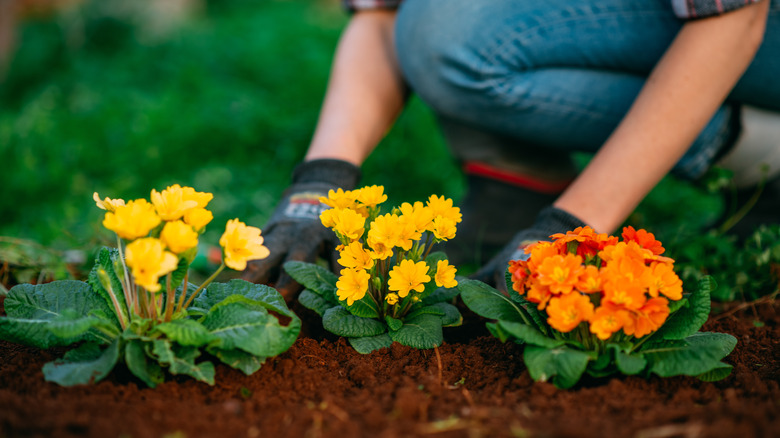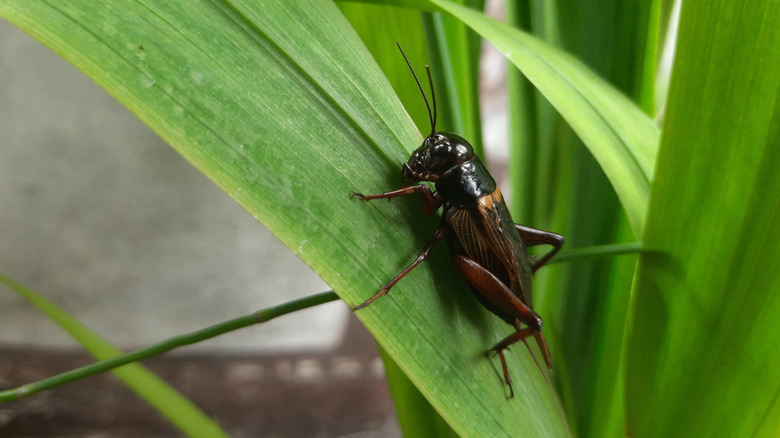Will The Plants In Your Garden Be Affected By The 2024 Solar Eclipse?
The 2024 solar eclipse, set for April 8, 2024, will pass over the United States, Mexico, and Canada. As it's occurring, residents of these areas will notice the sky darkening as the moon passes over the sun and potentially even have an opportunity to see parts of the outer atmosphere that are usually obscured by the sun. However, while you may know what will happen in terms of the actual event, you may not be aware that the solar eclipse could have an effect on your plants.
From a drop in regular photosynthesis rates to drooping leaves, plants have shown signs of being affected by events like a solar eclipse. It's important to note that the following data currently has no major scientific backing, so it might not always occur or apply to all types of plants. Nevertheless, it can still give you some insight into why your plants may be functioning a little differently during and after the upcoming solar eclipse.
Plants have shown signs of confusion during the solar eclipse
As mentioned, there is only anecdotal evidence for how plants fare when the darkness hits, but what has been found implies that solar eclipses do have an effect. Speaking to The New York Times, Daniel Beverly, a Ph.D. student in botany and hydrology at the University of Wyoming, shared what he saw happen to plants during the 2017 solar eclipse. When the eclipse occurred, Beverly stated that the plants showed decreased levels of photosynthesis (as they would at night).
Interestingly, when the eclipse passed and the sun resumed its place, the plants seemed confused. As Beverly explained, "That's when we saw the most evident signals of stress. It caused a disruption in the photosynthetic pathways." Overall, the estimated findings showed that some of the plants lost around 14% of their daily photosynthesis rate. For a plant doing well, this probably wouldn't have much of an impact. However, for one already on its last legs, this percentage would be enough to cause damage.
Nature and wildlife both seem to be impacted by the unique event
In addition to a decrease in photosynthesis, plants are also thought to experience physical changes like leaves that droop and a visible change in how the sap flows as the solar eclipse occurs. Interestingly, it isn't just plants that might be affected. The solar eclipse is thought to impact birds and potentially other animals, too. Due to the sudden appearance of darkness, some birds may become confused as they did in the 2017 solar eclipse. Chickens will start to search for an area they can roost, and, even if you try to keep crickets out of your garden, they will also likely start to chirp as they would at night.
Temperatures have been reported to drop by up to 11 degrees in past solar eclipses., which could partially account for a change in how both plants and wildlife act. All of these changes are incredibly interesting and make for a unique viewing experience in your garden. If you do plan to witness the solar eclipse, ensure you wear protective eye gear (and don't look directly at the sun!) to enjoy it to the fullest.


